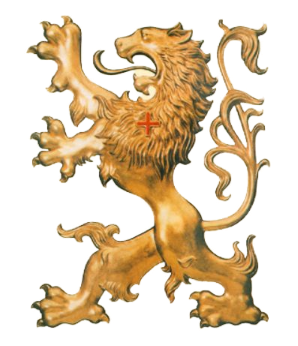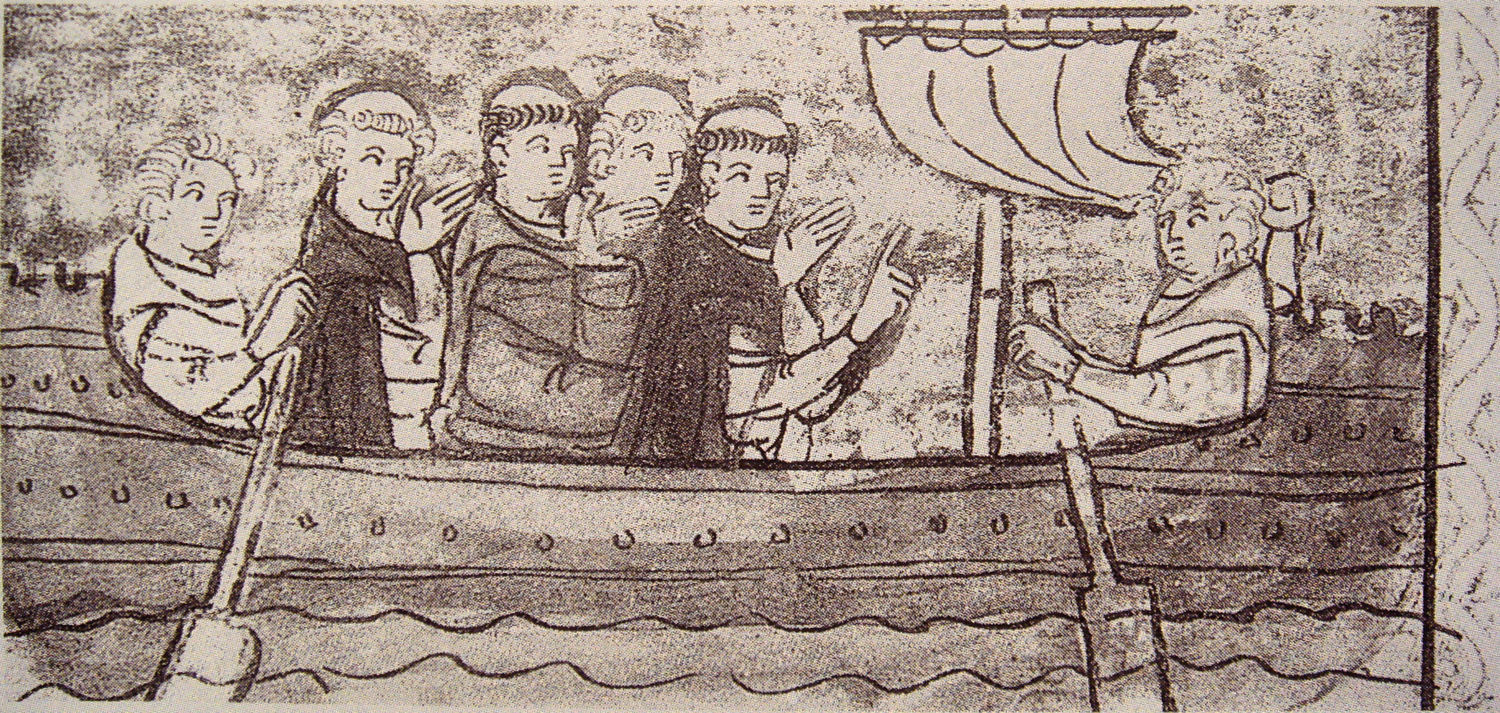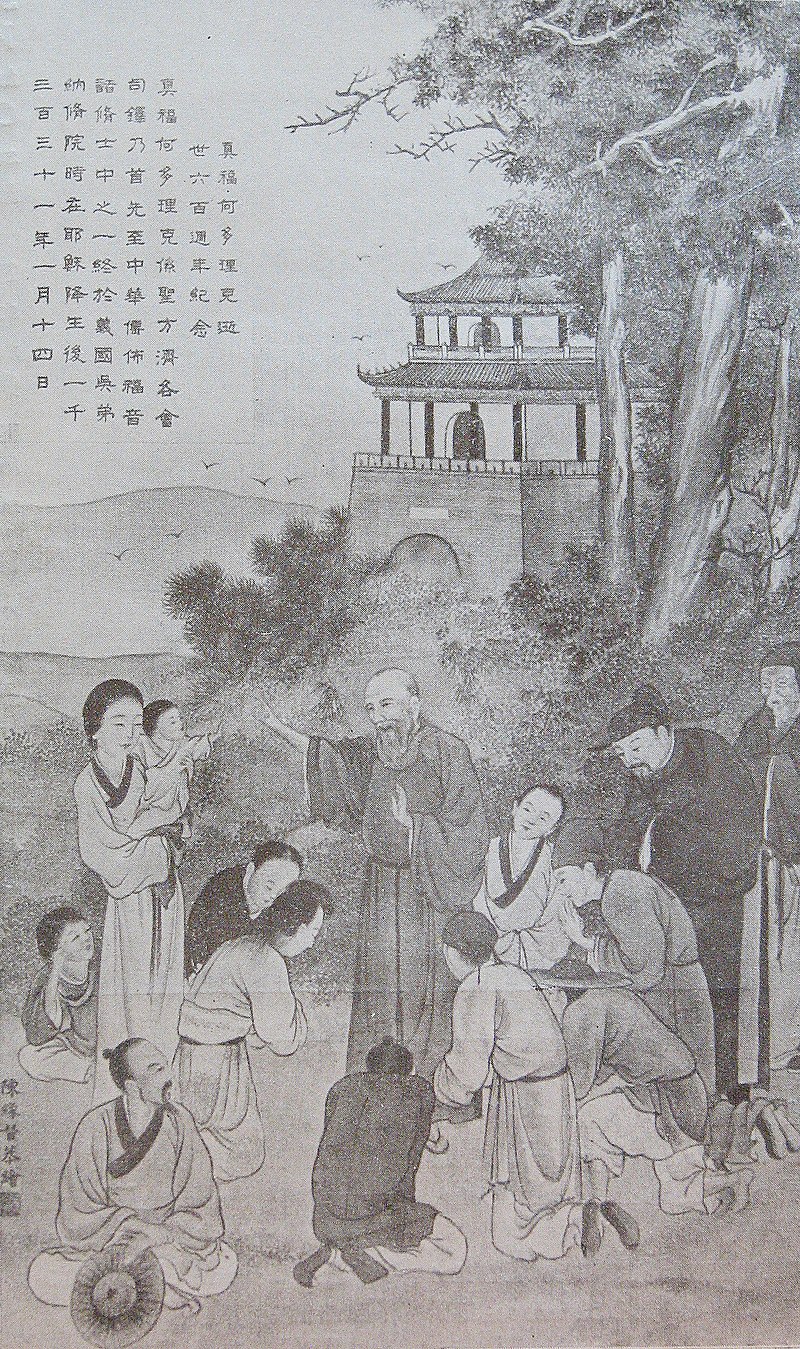|
Plinio Corręa de Oliveira
Blessed Odoric of Frioul and Franciscan Friars Visit the Chinese Emperor
Saint of the Day, Tuesday, April 18, 1972 |
|
|
Today, April 18, is the feast of Saint Galdino, bishop and confessor. Cardinal and bishop of Milan, he gave his soul to God after making a sermon against heretics. This is a very beautiful thing: To give a sermon against heretics and die after finishing it. It is a most sublime way of dying by killing.
The Departure Of Odoric Of Pordenone Our text for the Saint of the Day is about Blessed Odoric of Pordenone or Frioul, confessor, taken from Rohrbacher. “China had received the seeds of the Gospel since the apostolic period, long before the Jesuits arrived there at the end of the sixteenth century. One can often see sure signs of Catholicism in that country and exchanges between ecclesiastical and Chinese authorities throughout history. Thus, in 1307 Pope Clement V sent him seven Franciscan religious when appointing Giovanni de Monte Servino as archbishop of Peking. In 1318 and 1321, John XXII erected new bishops among the Tartars and sent them new missionaries. Among them was the blessed Odoric of Friuli, whose life as a traveler is simply extraordinary. He was born in Port-Naon [Friuli-Venezia Giulia, Italy]. In his early youth, he joined the order of the Franciscan Friars Minor, where he distinguished himself above all for his virtue. In 1314, his desire to win souls led him among the infidels, with orders from his superiors. This is how he arrived in China, where he stayed in Beijing, the residence of the great Kan, whose parties he attended several times. At court, the Friars Minor had a special accommodation and enjoyed the privilege of walking in front of the Emperor and giving him a blessing. Blessed Odoric himself recounts curious facts that happened during his stay at court. For example, one day, he was sitting with four Friars Minor in the shade of a tree not far from the path that the Emperor would travel, when one of the Friars, a bishop, seeing him approach, put on pontifical robes, raised a cross, and intoned the Veni Creator. Upon hearing that, the Kan asked the princes who accompanied him what it was about. They replied they were four Christian men religious. The Emperor bade them come before him and, seeing the cross, got up from the chariot, took off his pearl hat, and humbly kissed the cross. Since it is a rule that no one approaches the Kan’s chariot empty-handed, Brother Odoric presents him with a small basket full of beautiful apples. The Emperor took two, ate a piece of one and kept the other, clearly showing knowledge of and respect for the Catholic faith. After 16 years of travel, Brother Odoric returned to Italy. He died in Udine in 1331. His biographers say that he baptized thousands of pagans and performed many miracles. He is honored as a saint in the Patriarchate of Aquileia.”
Chinese depiction of the Blessed Odoric (c.1930) As you can see, these lives of saints are little-known but extraordinarily significant. I believe that when you heard the narration that he went to China, you all began to think that the thing was going to end with some dreadful torment: piercing his eyes with bamboo, cutting his skin into small strips, making him eat his own skin after he was scalped, or threw him into burning oil -- any old Chinese torture like that. Well, the end of the story is quite different. At a certain point, he returned and died peacefully in his motherland. The life of this saint is somewhat similar to that of another saint I commented on yesterday because it does not end in martyrdom or a catastrophe but is full of beautiful, admirable scenes that show that, while the palm of martyrdom is a magnificent ornament in the hands of a saint, one can also be a saint in other ways. I would like to draw your attention to two points. The first, which I have commented on several times, is that both the history of the Catholic world and that of the ancient pagan world were full of episodes fraught with meaning, loaded with symbolism, and deserving to be recorded in history. They could even be painted. In contrast, if contemporary history has scenes, they are crime scenes. The great events of contemporary history are held as much as possible without ceremony or any staging. To lower the level tremendously, the other day, I read the news that Brezhnev said he wanted Nixon’s visit to have as little ceremonial as possible and as much work as possible. Here you can see how the trend is working yourself to death, doing insane and even meaningless work, and banning any scene in men’s lives. That is because a strictly materialistic individual only understands material pleasure and frowns upon spiritual delights. And a scene offers souls a certain delight. Here we have a scene full of beauty that must be commented on. As you know, the emperors of China lived in a palace compound that was a real city-- the so-called Imperial City--because of its size and number of palaces, temples, and wonderful gardens. Access to this palace was out of bounds to anyone not part of the Emperor’s court. You can imagine, at that time, four Franciscan friars [visiting the place]. I have the impression they had the categorical attitude of the Middle Ages. They must have been Franciscans in burel and cord, with that tonsure and goatee as if they were walking in St Peter’s square in Rome or Piazza San Marco in Venice, talking under a tree about the marvelous, amid the balsamic perfumes of the imperial palace. While no one knows what they were talking about, it was probably about holiness, virtue, analyzes of the apostolate, comparing things in China with things in Europe to draw up plans, form an accurate judgment about things, etc. As they were talking, the Emperor passed. What a beautiful scene: four sons of Saint Francis, born of that immense epic that began in Assisi, spread to all lands and spilled even on the shores of the Pacific Ocean. There they are in Beijing, sitting as privileged guests in the garden of the imperial palace. Suddenly, they hear a murmur, a certain noise-- the Emperor was coming in his chariot. The worshiped Emperor, as you know. Here you see the spirit and attitude with which the four friars carry their apostolate. Instead of showing an inferiority complex, thinking: what will the Emperor think of us, our beards and tonsures? What will he think of the presence of these strange individuals in his garden? I wonder if he is going to have us cooked alive to eat our fingertips with asparagus for lunch. What should we do? Run away? Or at least bow deeply before the Emperor? None of that. The one who was a bishop rose and put on pontifical ornaments. He had a very beautiful cross and raised it as the Emperor passed. You would almost say it was a provocation. At any rate, it was a proclamation. What is the effect of this act of apostolic courage and his ardent missionary attitude? [His attitude amounted to this:] “The all-power head of this country is passing by; that’s fine. I hope that, through this crucifix, Our Lord Jesus Christ will preach to this man about His divinity.” The bishop lifts his cross and presents himself to the Emperor in his solemn vestments. What is the result? The Emperor stops and asks: who are these men? You can imagine the scene: the imperial chariot stops, and there is a hubbub among the courtiers as the hieratic Emperor looks on. They explain to him who those men were. He takes off a beanie full of pearls, uncovering his head in front of the crucifix in an attitude of respect and courtesy. Then arises the need to pay tribute to the Emperor because no one could approach the imperial chariot without offering him something. So the first part of the scene is the Franciscans talking. The second part of the scene is the approach of the Emperor, the bishop raising his crucifix, and the imperial chariot that stops. Then comes the Emperor’s question about them. So the fourth scene is Christ, represented there, and the Chinese Emperor asking who those men were and being told: they are Christians. The scene takes on color as the Emperor uncovers his head in a gesture of homage and respect Our Lord Jesus Christ. He probably did not know who Our Lord was but had some idea and wanted to pay homage to Him. What present could they give a man who had all those treasures, porcelains, rugs, carved woods, incense, gold? They artistically present him with a gift of Franciscan-grade poverty: a basket with beautiful apples. Nothing could be poorer because, in countries where they are easily grown, apples are worth as little as bananas. It would be like offering a basket of bananas. They were very red apples in a little basket, and with their Franciscan simplicity and charisma that came from Saint Francis of Assisi, approach the Emperor with the greatest ease and offer him the apples. Although they do not explain it here, the Emperor’s acceptance is an act of confidence because he eats part of the apple, meaning he trusts those men. At that time, antidotes were very rare and sometimes people got killed, so he really trusted them. Whoever ate a poisoned fruit would be off to the cemetery. So the danger of eating a poisoned apple is obvious. Yet he eats a piece of the apple and keeps the other apple, as if saying, ‘I want to keep a souvenir of you. The chariot moves on, the Franciscans stay. So was that contact between Our Lord Jesus Christ and the most powerful of the Chinese. What is the meaning of this scene? It has a very beautiful aspect that we can consider in a single glance: the encounter of two religions, the true and the false; the encounter of two civilizations, the Catholic and the pagan; the encounter of two very different splendors because here Catholic civilization is represented by Franciscan poverty and by Jesus Christ half-naked and nailed to the cross, while pagan civilization is represented by all kinds of wealth. This encounter is highly suggestive in all kinds of comparisons, reflections, and interior digressions. But then you have the scope of that historical scene, because the Emperor evidently received a grace and all the more so since a venerable man and future blessed was among them. The Emperor received a grace. What happened in his soul? What were the designs of God in the highest of heaven? What could the Emperor’s reactions have been in the depths of his soul? Would God have wanted at that moment to give the Emperor a grace of conversion directly? Or was that grace only meant to prepare for the Emperor’s conversion? One does not know. Would the Emperor have refused the grace of conversion right there while welcoming the missionaries in a friendly way? Or would he have refused the grace of conversion later on? The fact is that he did not convert, or at least that is not in the story. As a private man, he may have had an act of contrition at the time of his death, but not as Emperor of China. How much could have happened if people had corresponded to this historical episode? Can you imagine how the whole fate of the world would have changed if, at that moment, the Emperor of China had begun to convert and China had become a Catholic nation? Can you imagine the prayers those Franciscans made during and after that meeting? Can you imagine the fight between angels and demons around the Emperor? Because the Emperor decided the future of a nation. Here is a scene full of meaning, which represents the visit of Our Lord Jesus Christ to Beijing, much before and infinitely superior to Nixon’s visit to Beijing. That is one of those quick moments that sometimes decide the history of peoples. We are faced with a scene that is both a flash and leaves an unanswered question. The saint returned to his homeland, where he died. It seems that he has not been declared blessed by the Church and that his process is stalled, for, curiously enough, the text speaks of Blessed Odoric of Frioul but says that he is honored as a saint in the Patriarchate of Aquileia [in Italy], which gives the impression that he is not honored as a saint outside that patriarchate. The impression I get is that he is one of those ancient saints prior to the systematization of canonizations, whose veneration the Holy See allows in some places but not everywhere, although that is not clear in our text. Note that the action of this saint in China does not take place at that moment. As you have seen, here it says that he baptized thousands of faithful in China, meaning that he founded the Catholic Church in China. Therefore, the struggle for and against Our Lord in China was not decided only at that moment, but China had many opportunities to convert. She did not convert and we see the results before us. Anyway, these are beautiful scenes that lift the soul, instill hope, and do good. It did not do good to the poor Chinese, who took no advantage of it, but at least it did good for the South Americans in this audience. In the heights of heaven, this saint—so little remembered nowadays—must be happy because he sees that his example has done some good on a continent he did not know existed when in the world—a good that no longer benefits the China he visited. This is a good occasion for us to ask ourselves if we pray for China and we have missionary zeal for China, and whether this country, which the Church has so earnestly wanted to convert, presents possibilities for the Reign of Mary. It is a mystery. The Fatima revelations say that many nations will disappear. Will China be one of them? I believe that punishment is more fitting apostasy than paganism. I hope that one of our joys in the Reign of Mary will be to remember that on an evening of April 1972, we prayed for and saluted the Catholic China of the Reign of Mary in advance. (Why would a heathen kiss the cross?) The Emperor kissed the cross; what a beautiful thing! He must have had certain notions of what it was about and certainly had a good moment of soul there. Perhaps even he was being catechized. Nobody even knows if this meeting was not arranged because Chinese politics are very devious, like [our proverbial] Chinese rivers. Nobody knows if it was arranged to conduct a public opinion poll with the courtiers. Who knows if the Franciscans already knew what was going to happen? I would be more excited to know the episode was arranged than spontaneous. I am not a spontaneity enthusiast. I am passionate about making previous arrangements. Of course, it seems that people from a generation that followed mine are highly prone to spontaneity and do not much like making arrangements. But one needs to recognize that the nature of man’s intellect is to make arrangements. So who knows if that scene was arranged, if it was an attempt to see how things would go? The bishop’s self-assurance was such that he could have been a martyr—and that would have been a beautiful outcome. But how beautiful it would be if he [arranged it beforehand like] a great diplomat? (Bishop Mayer: They say the Franciscans had a special place in the Emperor’s palace, so they assume the Emperor regarded them with sympathy.) The Chinese liked and respected the Jesuits for a long time, considering them eminent and learned men, but relatively few Chinese converted. (The episode seems to beg for a connection with the TFP.) The TFP life has scenes [or episodes]. One thing that pleases me within the TFP is precisely a tendency toward sincere staging. Episodes mark the TFP’s entire life. |
|



